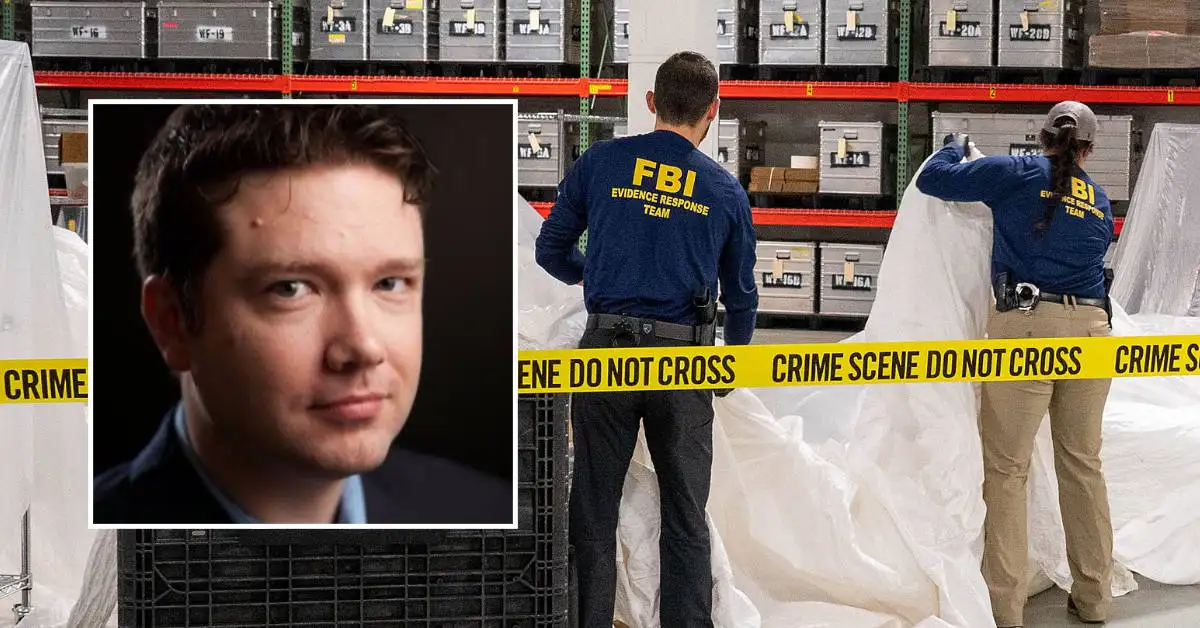
An attorney representing former journalist Timothy Burke in his high-profile computer crimes case says artificial intelligence tools and communication lapses were to blame for an error-filled court filing that drew criticism from a federal judge.
On Monday, defense attorney Mark Rasch admitted he and other members of Burke’s legal team used a premium version of OpenAI’s ChatGPT and an AI-powered research tool from Thomson Reuters to research and draft their motion for reconsideration of an earlier, unfavorable court decision.
Rasch said certain errors identified by him and other members of Burke’s criminal defense squad were ultimately included in the finalized motion he submitted to the court, the byproduct of lapses in communication.
Rasch, a former prosecutor, said he alone was responsible for the mistakes, and that Burke and his other attorney, Michael Maddux, were not to blame.
Last week, U.S. District Court Judge Kathryn Mizelle issued a rare public reprimand that accused Rasch and Maddux of including “unprofessional misrepresentations of legal citations” in the motion.
“Burke cites the authorities…as saying things that they do not say — and for propositions of fact and law that they do not support,” Mizelle wrote.
In other words, the motion filed by Burke’s attorneys contained quotes that were nowhere to be found in the cited cases. In some instances, the motion claimed certain cases supported legal views and precedents that, in reality, they did not.
Mizelle took the unusual step of demanding that the entire motion be struck from the court’s record, before federal prosecutors had a chance to respond to it. She gave Maddux and Rasch another chance to re-file the motion, with the errors correct, but also said any future filing on the matter would need to include a letter explaining to the court how the errors occurred in the first place.
On Monday, Rasch admitted that the errors were the byproduct of using artificial intelligence tools and Google’s search engine to conduct legal research. Maddux was preoccupied with an unrelated criminal trial, and had no involvement in the motion’s creation, he affirmed.
Rasch didn’t intend to copy-and-paste the answers surfaced by AI and search engines, and he did run the legal research through a Thomson Reuters-owned program called Westlaw Quick Check as part of his effort to carry out due diligence, he noted.
The motion was passed around to other paralegals in Florida and Maryland for fact-checking, but “during the editing and revision process, certain correct and properly-vetted portions of the memorandum were replaced with portions from multiple earlier drafts which had not undergone verification,” Rasch wrote.
“This included research, which had not been reviewed, being retained, while arguments and research that had been vetted being deleted,” Rasch continued. “This resulted in the retention of unverified and erroneous citations.”
Rasch said the problem was exacerbated by the fact that Burke was under a tight, court-imposed deadline to have the motion prepared and filed by a certain date. Ordinarily, Rasch said he would have requested an extension of time, given that Maddux was unable to help due to his other criminal case.
But he didn’t request an extension of time, which would have almost certainly prevented the errors from being included in the draft, Rasch admitted.
“In the future, attorneys will ensure no pleadings are filed without conducting a detailed and manual case law check and will seek additional time to write pleadings if necessary,” Rasch said. “The team will consult comprehensively about the state of pleadings prior to filing.”
The issue is particularly embarrassing for Rasch, who markets himself as an expert in complex legal issues involving computer crimes.
Burke initially retained Rasch in May 2023, shortly after his home was raided by the FBI and the U.S. Marshals Service as part of a broader investigation into the leak of unaired Fox News video clips.
Burke was ultimately charged with more than a dozen criminal counts, ranging from computer hacking to conspiracy. His alleged co-conspirator, Marco Gaudino, reached a plea deal with prosecutors last year and has agreed to testify against Burke during his trial, which is currently scheduled for September.
Rasch and Maddux do not dispute Burke used a password to gain access to a system where video feeds of Fox News programs were available. Burke has also admitted to recording the unedited feeds and providing clips to Media Matters for America and Vice News for a series of unflattering stories about the cable news channel.
But the defense attorneys claim that Burke was operating as a journalist at the time, and that he violated no law because the video feeds were not encrypted. Prosecutors say what Burke did was illegal because he only discovered the video feeds by using a password that didn’t belong to him and that he was not entitled to use.
Fox News Media, the parent company of Fox News, has not issued a public comment on the matter, but a source familiar with the company’s hiring practices said Burke never worked at the channel and was not authorized to view their unedited video feeds.